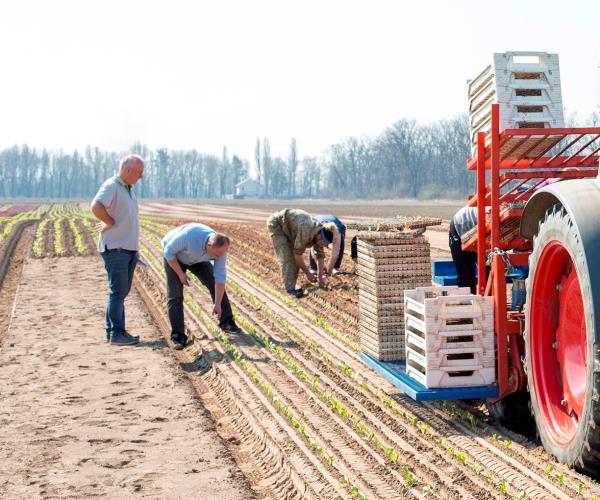Vegetable growers looking to accelerate their transition to mechanical harvesting due to COVID-19
Rijk Zwaan, vegetable breeding company, aim to help the vegetable food chain to adapt to the ‘new economy’ due to the coronavirus crisis by providing individual, relevant and applicable recommendations and solutions.
The company asked its European chain partners from UK, Spain, Italy and Germany about the impact of the crisis on their business and their expectations for the future. The vegetable breeding company is sharing all the relevant findings after insights received from organisations such as Rabobank, Nielsen and Edge by Ascential and well as from the expertise of its own crop and market specialists.
Worries about labour and economic uncertainties
Labour is proving to be a particular problem for growers and processing companies in Europe, and it is an issue for the organic sector also. The companies are looking to accelerate their transition to mechanical harvesting. Shortage of seasonal workers caused by European travel restrictions and by the reason that social distancing is not possible in many horticultural work environments. Many chain partners concerned about a possible recession, how it will affect the demand for fruit and vegetables.
Demand to commodity vegetables increased
According to Rijk Zwaan’s research, sales of fruit and vegetables increased by an average of 20% to 40% during the panic-buying phase. Especially vegetables and products with a long shelf life such as, peppers, tomatoes on the vine, iceberg lettuce and frozen spinach were in particularly demand. By initially decreasing stock keeping units (SKUs), retailers indicate that they are returning to previous levels now, when the situation with the lockdown Europe is easing.
Height interest in fresh and healthy produce
Interesting that consumer interest in fresh and healthy home cooking has been increase during the coronavirus outbreak. Research by Rabobank predicts that “home cooking” and “fresh & healthy” will remain important consumer trends in the future. This also applies to the new online sales channels.
Heightened consumers interest in online, local and organics
European retailers saw increases of 30% to 50% in their online channels, which is not surprising during COVID-19 pandemic. There has been a general rise in locally grown and organic produce because consumers showed increased interest in product origins and cultivation methods. The desire to support local businesses left a mark too. Experts predict that some online sales, home-delivery box schemes and local/organic produce will be sustained after the crisis.
Sharing with chain partners
Rijk Zwaan shares all relevant results with its chain partners to help them respond to the changes in the new supply chain. The company also offers various solutions, such as Salanova Teenleaf for mechanical harvesting and vegetables that are nice for box schemes thanks to their smaller size or longer shelf life.
For more information, visit webiste.





